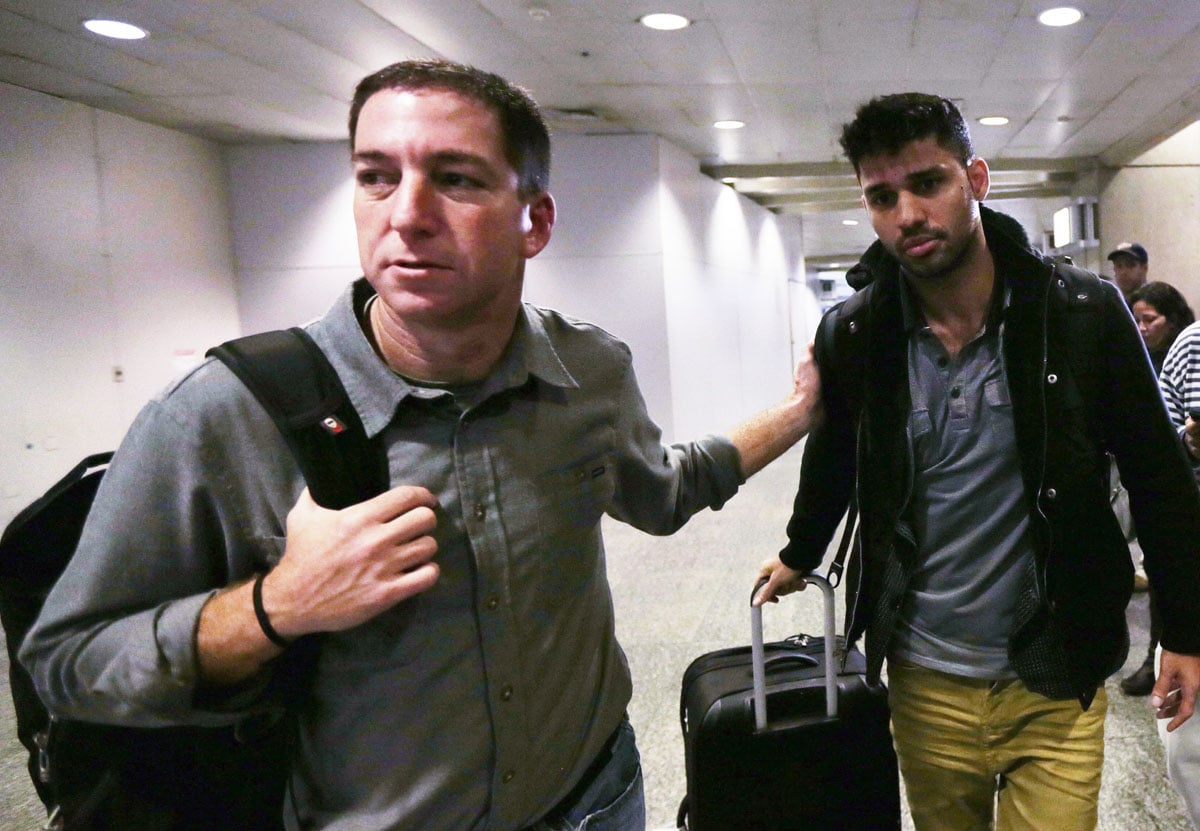
Schedule 7 of the Terrorism Act 2000 gives British officials at ports, airports and international railway stations up to nine hours to question suspects, and allows them to search the person and their possessions.
Unlike British law in other cases, suspects held under Schedule 7 are committing an offence if they refuse to answer questions and police are also not required to have reasonable grounds to stop them.
But concerns that the law may be too harsh led Home Secretary Theresa May earlier this year to propose changes, currently before parliament, to the law reducing the questioning time to six hours.
Under Schedule 7, an "examining officer" at British ports and borders "may question a person.... for the purpose of determining whether he appears to be a person falling within section 40(1)(b)".
That section involves someone who "is or has been concerned in the commission, preparation or instigation of acts of terrorism."
The law says officers can question the person "whether or not he has grounds for suspecting that a person falls within" the section on terrorism.
Anyone held under the law "must give the examining officer any information in his possession which the officer requests" and "give the examining officer on request any document which he has with him and which is of a kind specified by the officer."
The officer can also search the person and "anything which he has with him, or which belongs to him, and which is on a ship or aircraft".
Any property held under the law must be returned to the owner within seven days from the date of detention but data can be held for longer.
If the suspect fails to comply with the officer's orders or "wilfully obstructs, or seeks to frustrate, a search or examination" they can face up to three months in jail or a fine or both.
Schedule 7 specifies that people held under Section 7 must be released "not later than the end of the period of nine hours beginning with the time when his examination begins" -- unless they are arrested under other laws.
Britain has faced criticism for using anti-terrorism laws to stop Miranda, who has been working with Greenwald on the intelligence leaks from former US National Security Agency contractor Edward Snowden, which have been published by the Guardian newspaper.
COMMENTS (4)
Comments are moderated and generally will be posted if they are on-topic and not abusive.
For more information, please see our Comments FAQ

















@Hairan Yes its getting too long I am hairaan too man... @UZA Captaan just talk but Bhai been commiting since 1992...
@Hairaan: Yes, you have reasons to be worried but more for Mr Imran Khan who is on record endorsing Taliban's terrorism as a "Jihad" which is clearly and simply within the purview of section 40(1)(b)”; this section involves someone who “is or has been concerned in the commission, preparation or instigation of acts of terrorism.”. See, how automatically your dear Taliban Khan has made himself prime suspect for "instigation of act of terrorism"?
I am worried about our Bhai there.
Quite like the rule they had in IRA days, apart from the fact that it was a period of 7 days then.